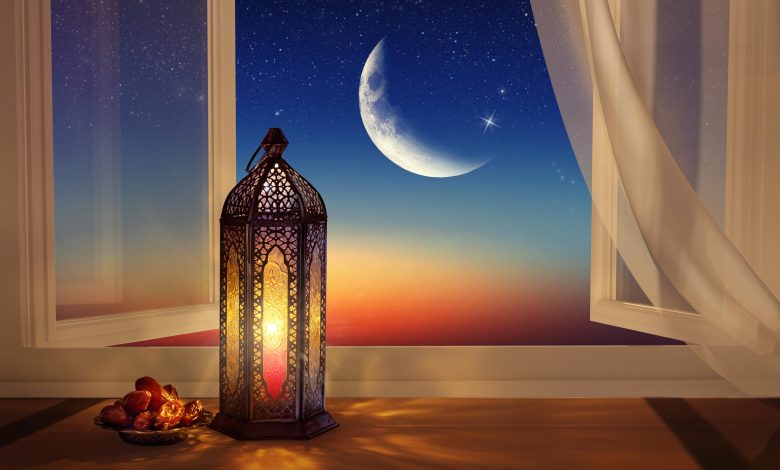Why Ramadan month is special for Muslims

- Ustaz Abu Jabir Adullahi Musa Abdul (Penabdul)
By Gabriel Omonhinmin
The month of Ramadan is important to every Muslim because the Holy Qur’an was first revealed in the month of Ramadan to Prophet Mohammad (bpuh). Ramadan is the ninth month in the Islamic calendar which Muslims worldwide observe as a month of fasting, prayer, reflection and communal living during this period.
Fasting in the month of Ramadan is prescribed because it is the fourth Pillar of Islam. The month of Ramadan is, therefore, one of the most important months to Muslims. It is a time of increased worship, spiritual cleansing, good deeds and acts of charity. In the light of Allah’s love and mercy towards us, the reward for every good deed in the month of Ramadan is multiplied by 70 percent.
To unravel the very essence of Ramadan and fasting in Muslim life, Trumpet Newspaper Culture and Religion Editor decided to reach out to a Kano based Cleric and Islamic Scholar, Ustaz Abu Jabir Abdullahi Musa Abdul (Penabdul) to help shed more light on the significance and importance of the month of Ramadan and fasting.
Trumpet Religion: Ustaz, what is actually the significance or importance of this Holy Month of Ramadan and fasting for Muslims?
Ustaz Abdul: According to Quran Chapter 2:183 Al-Baqara, which reads as follows, “Yaa ayyuhal lazeena aamanoo kutiba alaikumus Siyaaamu kamaa kutiba alal lazeena min qablikum la’allakum tattaqoon.” This means,” O believers, fasting is enjoined on you as it was on those before you so that you might become righteous.”
Every year, Muslims all over the world are expected to see the crescent new moon that symbolizes the first day of Ramadan, the ninth month of the Islamic calendar and it is assumed to be the most sacred in Islamic culture.
The beginning and the end of the phase of Ramadan or Ramzan depend on the moon sighting committee in Saudi Arabia. Usually, the moon is seen first in Saudi Arabia and some parts of India along with some western countries. Then a day later, in the rest of India, Pakistan, Bangladesh and other regions.
Read Also: CHRIST’S QUITESSENTIAL LEADERSHIP MODEL
These were the processes followed, before this year’s Ramadan began on April 2, 2022, and it will end on May 1, 2022. Besides, it is also indicating the coming of the auspicious Eid-ul-Fitt celebration. Muslims who can afford it may decide to prepare for the pilgrimage to Mecca this month because Umrah is encouraged throughout Ramadan.
Now there are five pillars of Islam of which fasting is among, 1- the declaration of faith (shahada), 2-Prayer (salah), 3-Alms-giving (zakat), 4-Fasting (sawm) and 5-Pilgrimage (hajj). These constitute the basic norms of Islamic practice. These practices are accepted by Muslims globally irrespective of ethnic, regional or sectarian differences.
Whether one is a Sunni or Shiite Muslim, the five pillars of Islam are the same. Faith (witness), Prayer, Charity, Fasting and the Pilgrimage. These Pillars come from the Qur’an, although not very well defined therein, it is in the Hadith literature that the Five Pillars are fully defined and detailed.
Ramadan is therefore the period of devotion, fasting, charity-giving and self-accountability. It is also a month of forgiving, where every Muslim gets closer to Allah. According to the Holy Qur’an, Angel Gabriel descended from heaven to reveal the Qur’an, Allah’s message to the Holy Prophet Muhammad, (bpuh), it was therefore instructed that the month of Ramadan should be marked by 29-30 days of fasting.
In Qur’an Chapter 2:184, the holy book further stated, “Fast a (fixed) number of days, but if someone is ill or is travelling (he should complete) the number of days (he had missed), and those who find it hard to fast should compensate by feeding a poor person. For the good they do with a little hardship is better for men. And if you fast it is good for you, if you know.”
During this period, fasting is obligatory for all adult Muslims unless they are sick, travelling, having a menstrual cycle, pregnant, diabetic, or elderly.
During fasting, people are expected to consume Sehri early in the morning, before sunrise. After this, they are also expected to attend Fajr, the early morning prayers. They are also expected fast the entire day without eating or drinking until evening. Later in the evening, Muslim faithfuls are expected to gather to break their fast with a Khajur at ifar and go for Maghrib, evening prayer.
During Ramadan, Muslims aim to grow spiritually and become closer to Allah and their loved ones.
During the last ten days of the month of Ramadan, several people prefer to mark the event of the 27th night known as ‘Laylat ul Qadr’ ‘The Night of Destiny.’
Thus, keeping to these tenets of Islam is a way of celebrating and honouring Prophet Muhammad and developing more self-control as a Muslim.
Trumpet Religion: Oftentimes some Muslims find it difficult to fast during this period, because of various reasons. Such as poor health and hardship. How can Muslims in these categories compensate for not being able to fast, when other Muslims are fasting?
Ustaz Abdul: Islam is a complete way of life, people who are extremely sick during this month of Ramadan are already told what to do in the Holy Qur’an.
According to Islamic Law, a sick person is exempted from fasting from the very first day or for all of the 30 days depending on the condition. Such a person is however expected to make up for the missed days if he or she is well enough later. If such a person is unable to make it up for the missed days, he or she is expected to feed or pay the poor or needy to make it up for them.
There are, however, people exempted from fasting during this month. They are children, who have not reached puberty, the elderly, those who are physically or mentally incapable of fasting, pregnant women, breastfeeding mothers and travellers.
Hardship to a true Muslim is not enough reason(s) to abstain from fasting during the Holy Month of Ramadan.
Qur’an Chapter 2:155 says, “Be sure, we shall try you with something of fear and hunger and loss of wealth and life and the fruits (of your labour), but give tidings of happiness to those who have patience.
What is decreed for us is not always in harmony with our desires and fancies. But then, we are not in a position to suggest. On the contrary, our right station and position are that of a worshipper, who surrenders his will.
A slave (of Allah) is tested according to the level of his/her faith. The Prophet (bpuh) said: “I feel the pangs of death equal to what two of your men feel.” The most severely tested are the Prophets and then the righteous. A verse of the Qur’an reads “Therefore be patient (O Muhammad) as did the Messengers of strong will…” Qur’an 46:35.
For Whomsoever Allah wishes good, He will afflict him.
From the above explanation, fasting is mandatory for able body Muslims, who are not sick or travelling. So hardship in any form is not an excuse to run away from fasting in the month of Ramadan, it is compulsory.
Trumpet Religion: Is it true that people who fast during this month of Ramadan are extra protected alongside members of their household, against all manner of evil, during observance and after the fasting period.
Ustaz Abdul: Allah protects those who believe. Every man or woman, whether we admit it or not, needs a god, and it follows that god must possess certain qualities, such as omnipotence, power, richness, and everlastingness. The One Who has all of these – and all other perfect qualities is Allah, the Lord of all that exists.
Therefore, the sincere seeker is drawn to and then finds comfort in his belief in Allah, the Exalted. He is the sanctuary of the weak and of the ones who see refuge.
Remember when you sought the help of your Lord and He answered you. Qur’an 8.9.
And He protects all, while against Whom there is no protector, i.e. if Allah saves anyone none can punish or harm him, and if Allah punishes or harms anyone, none can save him… Qur’an 23:88.
When there will be neither a protector nor an intercessor for them besides Him… Qur’an 6:51
So, Whosever worships other than Allah, even though he loves Him to a certain degree, is worse than the one who enjoys eating food that has been poisoned.
The need we have for Allah is shown by the connection sought by us between the transient and the Everlasting, the weak and the Almighty, the poor with the Rich. And whoever does not take Allah to be his Lord and God will positively take other than Him as a god. He will, for example, take pictures, objects of love, or his desires to be his deity, and then he becomes the slave and servant of that false deity. Of this, there is no doubt. The Qur’an informs: “Have you seen him who has taken as his god his own desire?” Qur’an 25:43.
It continues, “Yet they have taken besides Him other gods…” Qu’ran 25:3
In essence, the month of Ramadan which is the ninth month in the Islamic calendar is very important in the life of any Muslim. We are therefore enjoined to fast, pray and make fervent supplications to Allah alone. I repeat, it is a must for every able body Muslim.




